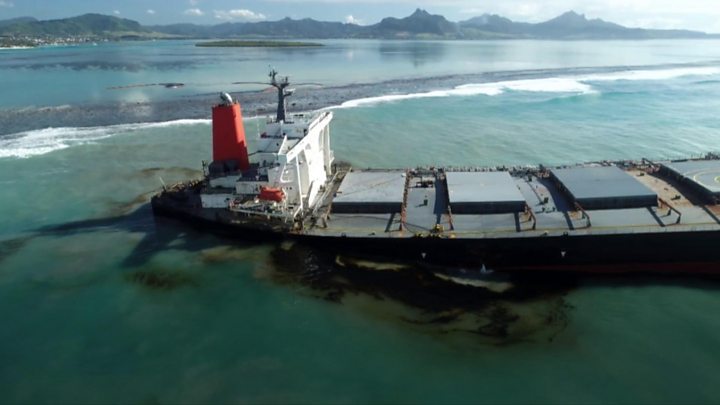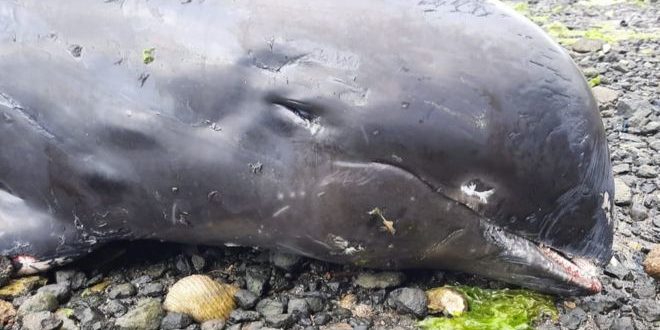At least 13 dead dolphins have been found on the seashore in Mauritius, more than a month after the huge oil spill caused by a Japanese-owned ship.
The deaths have been caused either by the spill or the authorities’ decision to sink the ship’s stem, environmental campaigners say.
The carcasses have been sent for a post-mortem, which will establish the cause of deaths, police said.
These are the first reported deaths of dolphins since the shipwreck.
Up to now, many fish and crabs have been found dead.
It is very rare for so many dead dolphins to be found at the same time. Two were found in May 2019.
The MV Wakashio ran aground on coral reef on 25 Juy at Pointe d’Esny, a known sanctuary for rare wildlife.
The area also contains wetlands designated as a site of international importance by the Ramsar convention on wetlands.
The sight of dead dolphins has caused much anger among residents.
“Waking up this morning to witness so many dead dolphins on our seashore is worse than a nightmare. Many non-governmental organisations, fishermen, experts said not to sink that ship at the place they did as it was like a home for the dolphins but once again the authority took a bad decision,” resident Nitin Jeeha told the BBC.
“I have seen around eight to 10 dead dolphins. Are there more in the lagoon?” he added.
The Department of Fisheries confirmed 13 deaths, saying many of the dolphins were dead, while others were weak or dying, when they were found on the seashore.
Oceanographer Vassen Kauppaymuthoo said the dolphins smelled of fuel oil.
“In my opinion, this situation will continue to deteriorate as time goes on,” he was quoted by local media as saying.
Environmentalist Sunil Dowarkasing said either the oil spill from the bulk carrier or the sinking of its front last week caused the deaths.
“The scuttling probably disturbed marine mammals in their natural habitat. There will be after-effects, and this is just the beginning,” Mr Dowarkasing added.
Greenpeace Africa has warned that “thousands” of animal species are “at risk of drowning in a sea of pollution, with dire consequences for Mauritius’s economy, food security and health”.

 Home Of Ghana News Ghana News, Entertainment And More
Home Of Ghana News Ghana News, Entertainment And More




